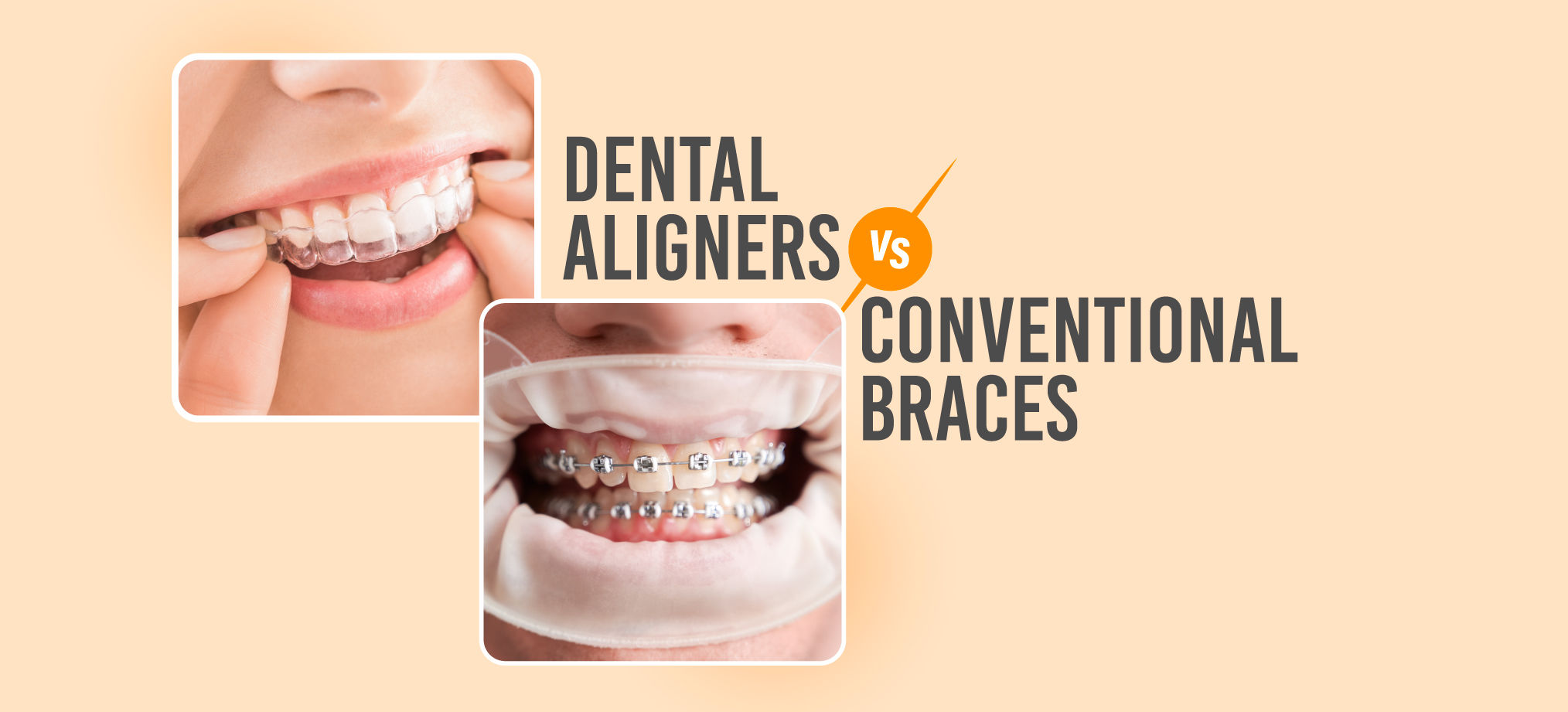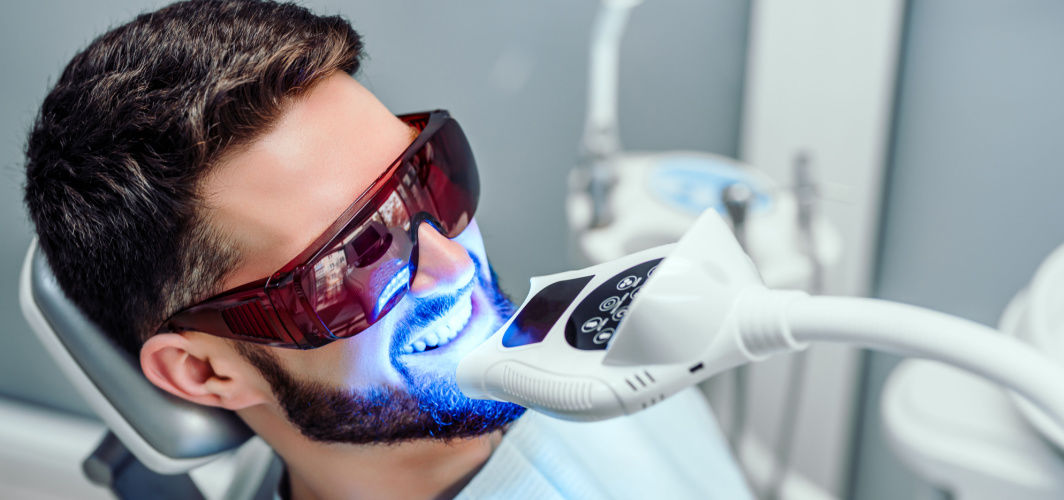Oral & Dental
Dental Aligners Or Conventional Braces: Know The Difference & Which One Is Better!
4 min read
By Apollo 24|7, Published on - 13 February 2023, Updated on - 25 July 2024
Share this article
0
2 likes

In recent times, there have been some major advancements in the field of dentistry. Many of these changes have led to a dynamic shift in the traditional techniques used to manage dental issues. One such revolutionary change is the introduction of dental aligners. Dental aligners have made undergoing orthodontic treatment nowadays much more relaxing and painless.
According to Dr Shweta Mathur, a dentist associated with Apollo 24|7, “dental aligners have brought a significant change in orthodontic treatment. Though it is unfair to say that conventional treatment wasn’t good enough but aligners certainly have a better approach, methodology, execution and prognosis. Depending upon the severity of the malalignment, the aligners offer sound aesthetic results, which can be analysed before initiation of treatment by means of the new technological advances.”
Here is a list of some major advantages of dental aligners that make them a better alternative to conventional braces.
1. Increased Comfort
Also known as invisible trays, dental aligners have transformed the way people thought of braces and their comfort level. Dental aligners allow patients to remove the aligners whenever needed. People can easily take them off when eating, sleeping, and cleaning. Furthermore, unlike traditional braces, it does not cause ulcers on the inner part of your lips.
2. Better Appearance
Conventional braces are very noticeable and uncomfortable as food can get caught between the brackets. On the other hand, clear aligners are aesthetically pleasant and easy to remove whenever needed.
3. Much Safer
Traditional metal braces consist of many components like elastic bands, metal wires, and brackets, which tend to poke the tongue, lips, and cheeks. This can lead to severe discomfort and ulcers inside your mouth. Moreover, the remains of food stuck to the braces attract bacterial growth, resulting in gum diseases and tooth decay. In such cases, cleaning becomes essential, which can be a tedious chore after every meal. On the other hand, dental aligners are comfortable and can be removed whenever required.
4. No Food Restrictions
In the case of treatment with conventional braces, you are required to refrain from eating certain food items such as chewing gums, sticky candies, chocolates, and cheese. However, with aligners, you can eat anything whenever you want, without any restrictions as they are required to be removed while eating.
5. Beneficial for Dental Health
When using traditional braces, it can be tough to take care of your oral hygiene. This can result in oral health issues like gingivitis, calculus deposits, and tooth decay. Using dental aligners enables you to follow healthy oral practices as you can easily remove them for flossing and brushing properly. This reduces your susceptibility to developing dental health problems.
Dr Shweta Mathur says, “Dental aligners are certainly a boon for oral dental hygiene as compared to conventional braces. Metal braces are fixed onto the surface of the tooth during the entire course of the treatment (1-2 years). This leads to food entrapment and results in decay as cleaning these nooks and corners becomes challenging for the patient. However, since aligners can be removed, the patient can clean their teeth after every meals, leading to better patient compliance and hygiene.”
With so many advantages of dental aligners, teeth straightening has now become easier than ever. So, you can set up an appointment with your dentist at the earliest to begin your painless treatment without hesitation.
FAQs
Q. Can aligners change your facial structure?
Aligners can change the placement of your teeth, which may slightly change the positioning of your lips. For instance, if your upper teeth are placed in such a way that they hamper the proper closing of your mouth, aligners can help close this gap by pushing your teeth inside.
Q. Can aligners push teeth back?
Yes, depending on the severity of the misalignment of your teeth, dental aligners can help push them back to a proper alignment.
Q. Can I eat with aligners on?
No, they should be removed before eating anything at all. You can put them back as soon as you are done eating.
Q. Do aligners fix teeth permanently?
Yes, aligners can fix teeth permanently if you follow the instructions of your dentist.
Q. Are aligners painful?
Aligners are not really painful. However, people may experience minor discomfort, in the form of pressure, every time the mouthpiece is changed.
Medically reviewed by Dr Sonia Bhatt.
Oral & Dental
Leave Comment
Recommended for you

Oral & Dental
The Effect of Tobacco on Oral Health: It’s More Serious Than You Think
Tobacco use is a known risk factor for various oral diseases. Tooth decay and gum diseases are some of the common oral health effects of tobacco use.

Oral & Dental
Teeth Whitening: Types, Risks, Side Effects, Results
Achieve a brighter smile with professional teeth whitening. Learn about the different types of teeth bleaching techniques, their risks, side effects and results.

Oral & Dental
Common Myths About Oral Health - Busted!
Some beliefs regarding dental health are incorrect and have no scientific reasoning. Let us bust some of the common myths associated with dental health.
Subscribe
Sign up for our free Health Library Daily Newsletter
Get doctor-approved health tips, news, and more.
Recommended for you

Oral & Dental
The Effect of Tobacco on Oral Health: It’s More Serious Than You Think
Tobacco use is a known risk factor for various oral diseases. Tooth decay and gum diseases are some of the common oral health effects of tobacco use.

Oral & Dental
Teeth Whitening: Types, Risks, Side Effects, Results
Achieve a brighter smile with professional teeth whitening. Learn about the different types of teeth bleaching techniques, their risks, side effects and results.

Oral & Dental
Common Myths About Oral Health - Busted!
Some beliefs regarding dental health are incorrect and have no scientific reasoning. Let us bust some of the common myths associated with dental health.